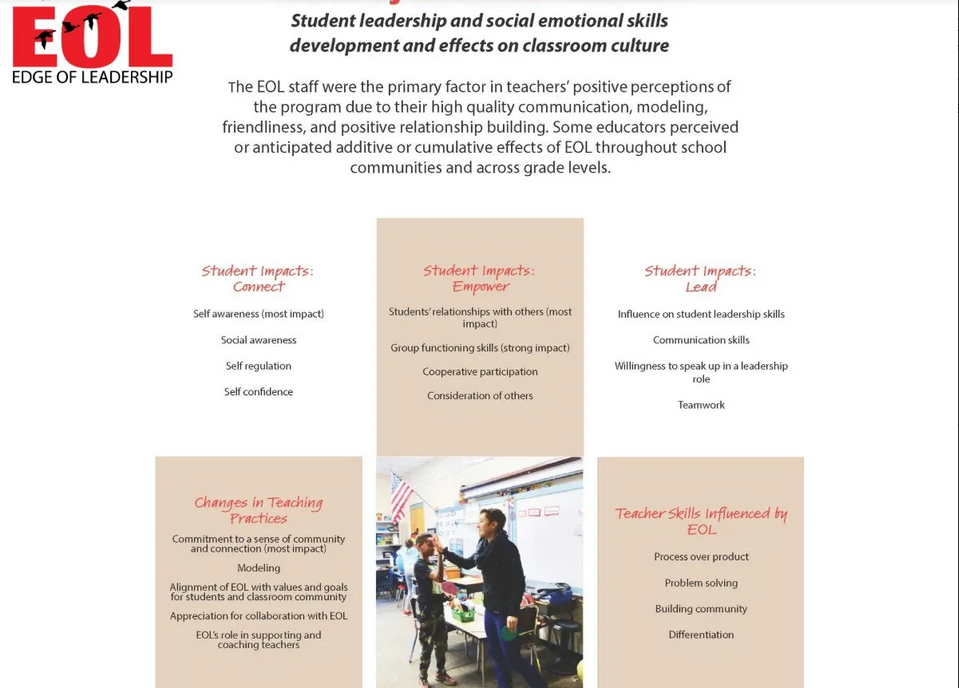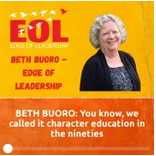We Could Use More Bildung in Schools - EOL Can Fill the Void
By Beth Buoro
In the OpEd “This Is How Scandinavia Got Great”, New York Times columnist David Brooks speaks to the Nordic approach to education incorporating the concept of bildung. Wikipedia describes bildung as the German tradition of self-cultivation, wherein philosophy and education are linked in a manner that refers to a process of both personal and cultural maturation. It’s just a word, and it’s elusive to define, but it speaks to the point of cultivating lifelong learning together for the betterment of all. Are we ready to embrace bildung in our schools?
Scandinavian schools and educators have long recognized the vital importance of fostering connections and relationships between self and others, family, community, and the larger world. Social mutuality, as well as pride in heritage, is valued and celebrated. In contrast to the traditional American hierarchy of teachers transferring their knowledge to students, bildung and the reciprocity it invites, provides an emphasis on lifelong learning that allows students and teachers to learn together, not separated by their roles in the classroom.
Bildung is Present in Edge of Leadership!
It’s easy to see how the Nordic approach to education and the tenets of bildung support High 5’s Edge of Leadership (EOL) program. EOL’s emphasis is on connecting and empowering students through social and emotional learning to develop student leaders. Another beneficial outcome of EOL programming is a more cohesive classroom culture. One that boasts more inclusion and empathy for other students – social maturity in action. The experiential education component of EOL, as well as the participation of students and teachers together as learners, only adds to this alignment of the two philosophies.
Helping children understand and reflect upon themselves and their connection to – and impact on – others and the collective are the foundational skills needed to empower leaders to bring groups and communities together for the greater good. Signs of bildung are present throughout the EOL program as evidenced by teacher evaluation feedback (see the Summary of Effects/Outcomes at right).
The Work Ahead
Let’s not forget the crucial importance of our work as we strive to assure that students have ongoing opportunities throughout their education to develop this sense of cultural maturation, and are inspired to positively contribute to society as adults. Now more than ever, we need to help develop future leaders with a vision for an inclusive and collaborative society.
Curious to learn more about High 5’s Edge of Leadership program? Click here!


Listen to an EOL Podcast episode with Beth Buoro, EOL Program Coordinator.